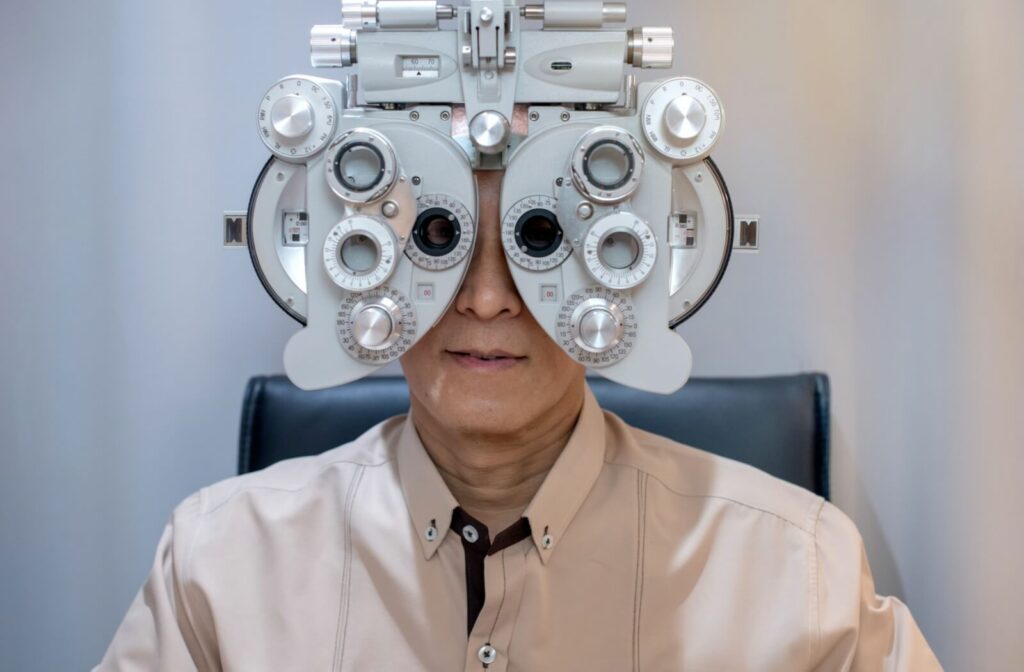The Value of Eye Care
Your eyes are your windows to the world around you, allowing you to see and experience everything. Similar to a physical examination, taking care of your eyes should be a top priority. Regular eye exams are incredibly important for maintaining optimal vision health.
While we understand that cost is an important consideration, it should not be the sole determining factor when selecting an optometrist for your or your child. On average, the cost of an eye examination without insurance is $184. Although it’s important to take into account the different types of eye exams too.
Types of Eye Exams
Specialized eye exams are more comprehensive and may be more expensive than regular vision checks. Your eye doctor will usually conduct these exams to identify complex visual disorders or specific eye-related health issues. If you have a history of glaucoma in your family or are over 60, your doctor might recommend a different eye exam.
Sight tests and school vision screening aren’t enough and shouldn’t be used in place of an optometrist’s routine comprehensive eye exams.
Comprehensive Eye Exam: With many eye conditions not presenting signs or symptoms, this test is one way to safeguard your vision for years to come. During the exam, the optometrist will assess your vision quality, internal and external eye health, focus adjustability, eye movement, eye coordination, and peripheral vision during a thorough examination. Additionally, depth perception and color vision will be assessed.
Dilated Eye Exams: This simple and painless procedure is one of the best ways to detect eye diseases early, especially if you’re over 60 or have a history of glaucoma. The eye doctor will give you drops to help dilate your pupils which will help them see the back of your eye.
Contact Lens Exams: These are specific tests that help determine if contact lenses are an option for you. It will also get the measurements so your contact lenses fit properly and comfortably.

The Importance of Regular Eye Exams
Regular eye exams are important for keeping your eyes and overall health in good shape. Sometimes, eye or vision problems don’t show obvious signs, so it’s best to be proactive. When you visit your doctor, they will take into consideration things like your medical history, how well you can see from afar and perform any necessary test to determine an appropriate course of action.
Additionally, a comprehensive eye test can have other benefits like detecting early warning signs and symptoms of over 270 systemic and chronic diseases.
As life gets busier, it can be hard to remember to schedule regular eye check-ups with a professional. However, for the sake of maintaining healthy eyesight and overall well-being in the long run, it’s crucial to prioritize routine eye exams.
Eye Exam Frequency
The frequency of your eye exams depends on your age and any health conditions you might have, like diabetes or high blood pressure. It’s also important to disclose your family medical history.
- Children and Teens: Kids and teens may need more frequent eye exams while their eyes are developing. Your eye doctor can help you figure out the best schedule depending on your specific needs.
- Adults 19–64: If you’re between 19 and 64 and overall healthy, you should get a comprehensive eye exam every two years. However, if you have diabetes or a family history of glaucoma, you might need eye exams more often to keep an eye on your health.
- Adults 65+: As you age, your eyesight may begin to decline. This is why it’s crucial to have regular eye exams to detect any early indications of eye disease. Your optometrist can devise a personalized examination schedule according to your general health, family history, and individual requirements.
Final Thoughts & How We Can Help
Choosing where to go for your eye exam can feel overwhelming at first. However, it’s important you choose a place where you feel comfortable and that your questions get answered.
Eye exams are crucial for maintaining overall eye health and peace of mind. It’s important to follow your eye doctor’s advice and keep on top of your appointments, especially if you have a family history or are over 60.
At EyeQ Optical, we prioritize the health and safety of our patients. If you have questions about which eye exam is best for you, schedule an appointment with our optometrist for a thorough examination and proper treatment.




